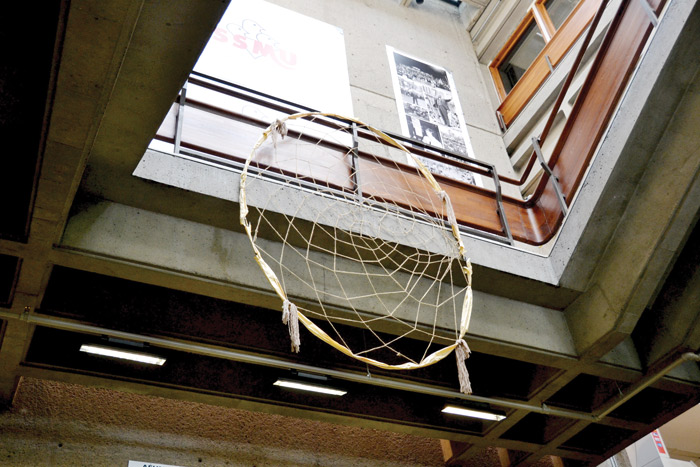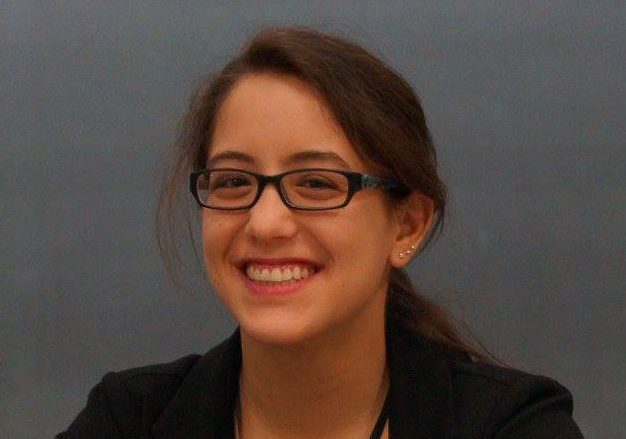Non-indigenous allies at McGill need to be conscious of their actions and intentions. These allies often wish to act in solidarity with indigenous peoples and students. They are usually well-intentioned, and the solidarity is greatly appreciated—so long as allies do not overstep their boundaries. A few ways in which I’ve noticed allies overstep their positions include speaking on behalf of indigenous communities, tokenizing indigenous speakers, and projecting their own views of indigenous peoples onto students, then using these projections to further their own causes. A clear example was the Students’ Society of McGill University (SSMU) General Assembly (GA) in the Winter 2016 semester, where a motion relevant to indigenous students was proposed without proper consultation. In part, this comes back to McGill’s lack of indigenous students; with only 230 of us enrolled, it is hard to see who we are and hear our diverse opinions.
Instead of further explaining these boundaries, it is more important to discuss how allies can ensure that they can make a positive change. There is much work to be done at McGill, and indigenous students certainly need a strong force of allies behind them to precipitate this change.
Allies must regularly reassess why they’re being allies. If one is being an ally only to further one’s own cause, then he or she should not claim to be acting in solidarity with indigenous students. Sometimes, however, such circumstances are not clear—for example, when allies truly do care about indigenous issues and are working on a related cause. There is potential here for allies to to co-opt an indigenous issue to garner support for another unrelated cause, as was done by some supporters of the Boycotts, Divestment and Sanctions (BDS) motion (BDS organizers later personally apologized for the incident). Consequently, non-indigenous allies must regularly reassess their motivations.
In addition, allies on campus should always try to connect with indigenous students if they’re working on an indigenous-related topic. This year, after holding multiple indigenous leadership positions on campus, I realized how little allies and clubs reach out to indigenous student groups. In fact, McGill’s administration reached out more to the Indigenous Student Alliance (ISA) this past year than all other clubs and student groups combined. Involvement can range from a show of good faith, such as inviting clubs to an event, to more active participation by Indigenous students, peoples, and communities, which is necessary for any campaign about an Indigenous issue. The Indigenous Affairs Coordinator at SSMU is also available. It is important to not speak on behalf of indigenous peoples; we may be marginalized, but we aren’t incapable of speaking for ourselves.
One successful instance of allyship this past year was the collaboration of the ISA and the McGill Students Indigenous Studies Journal (formerly KANATA) in helping the journal to become a better ally. It was a long, exhausting process—but in the end, many positive changes were made. Now, both groups feel much more connected and in solidarity. I hope other student groups will follow this example.
As well as listening to Indigenous voices, allies must be informed about the cause they’re supporting. Indigenous issues are multifaceted and complex. It is important to explore various news updates (such as the 2016 Indigeneity and Allyship Report), band council and cultural publications, and articles by indigenous writers in order to get an in-depth understanding of a cause, who it affects, and its implications for indigenous students and peoples. This entails coming to a holistic understanding of topics in order to respect all perspectives, which is especially important given that indigenous peoples are diverse and politically pluralistic.
As indigenous students on campus continue to tackle problems at McGill, including disproportionately low enrolment, lack of indigenous course content, racism, and prejudice, we need our allies to support us in our battles. The ISA, which presently operates as a student group with the support of the First Peoples’ House, has applied for SSMU Club Status to improve accessibility, visibility, and support for Indigenous students. I encourage all allies to stay on the lookout for news about the ISA, follow the suggestions detailed above, and, above all else, connect with indigenous students!










